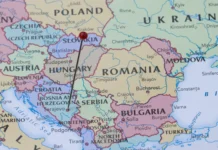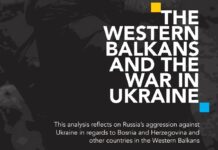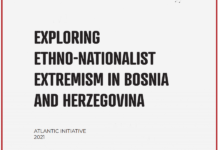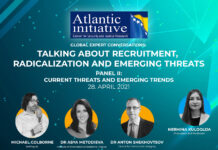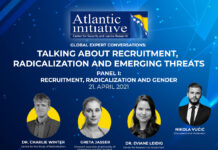NATO and Russia share more security concerns today than at any point since the Cold War. These include instability in Afghanistan and the neighboring region, escalation of regional conflicts, proliferation of WMD and missile technology, and the threats posed by terrorist networks, organized crime and other non-state actors.
In these and other areas Russia and NATO may not always have identical interests, but invariably their cooperation makes it easier to achieve important overlapping policy objectives.
The NATO summit in Lisbon should take advantage of the window of opportunity created by the “reset” in U.S.-Russian and Polish-Russian relations to take a step toward a Euro-Atlantic security community free of dividing lines and internal threat perceptions.
As NATO adopts a new Strategic Concept, it should also set out a “NATO-Russia Strategic Concept” — a new strategy for NATO-Russia relations. This should set the goal of bringing Russia closer to NATO (though not yet into NATO) through enhanced confidence-building mechanisms, improved joint decision-making and expanded areas of practical cooperation.
The need to improve NATO-Russia relations is reinforced by public attitudes on both sides. According to a recent public opinion poll conducted by the Pew Research Center, the proportion of Russians who view NATO favorably has increased from 24 percent to 40 percent — a greater increase than in any of the NATO member states. In NATO states, favorable perceptions of Russia have also increased — in Germany and France by 8 percent, in Poland by 12 percent and in the United States by 6 percent.
A NATO-Russia Strategic Concept should have five key elements:
• Multi-tiered confidence-building measures: NATO and Russia should work to preserve key transparency elements from the failing Treaty on Conventional Armed Forces in Europe (CFE). They should devise additional confidence-building measures in Northern Europe and the Black Sea region, including major military exercises along shared borders. Both NATO and Russia should provide credible security reassurances for Central and Eastern European NATO members — not through Cold War-era contingency planning against a nonexistent Russian threat, but through confidence-building measures with Russia.
• Missile defense: Russia should participate fully at all levels of cooperation between the United States and its European allies on missile defense. And Russia and the United States should go further, cooperating on a system outside of Europe. Joint threat assessments should be complemented by information-sharing and technological cooperation.
• Stabilization of Afghanistan: Russia is already contributing to allied operations in Afghanistan by providing land routes in the north through which almost 50 percent of all non-lethal goods are currently supplied to International Security Assistance Forces (ISAF).
NATO and the Russia-led Collective Security Treaty Organization (CSTO) should also cooperate to develop a counter-narcotics strategy for the region. And Russia should participate in devising a regional approach for a post-ISAF Afghanistan, and continue to contribute to the training of the Afghan Army and police.
Enhancing interoperability between NATO and Russia: Russia’s current transformation of its armed forces offers an opportunity to enhance interoperability with Western militaries — which have provided a model for many aspects of Russia’s current reforms, from establishing a professional cadre of noncommissioned-officers to a more devolved command structure. Russia and NATO should increase joint education programs, including language training for Russian officers.
Moreover, NATO should rethink its reservations about military-technological cooperation with Russia. Today, up to 30 percent of the modern weapon components procured by the Russian armed forces already come from foreign producers.
• Reforming the NATO-Russia Council: If NATO agrees to transfer some of its work — such as cyber and energy security, humanitarian assistance and disaster relief and anti-piracy operations — into the explicit purview of a reformed NATO-Russia Council, the council would become a genuine decision-making body and not just a tool for managing NATO’s relations with Russia.
The question of eventual Russian membership in NATO will persist. Viewed against present realities, the question may seem almost abstract. But real political and diplomatic penalties would be incurred in closing off the debate.
The pragmatic cooperation we advocate, which has an intrinsic value of its own, would at least ensure that the debate is carried forward with more experience and in a context that is less charged.
November 18, 2010 International Herald Tribune
By OKSANA ANTONENKO and IGOR YURGENS
Oksana Antonenko is a senior fellow at the International Institute for Strategic Studies in London. Igor Yurgens is chairman of the Institute for Contemporary Development in Moscow. A-


